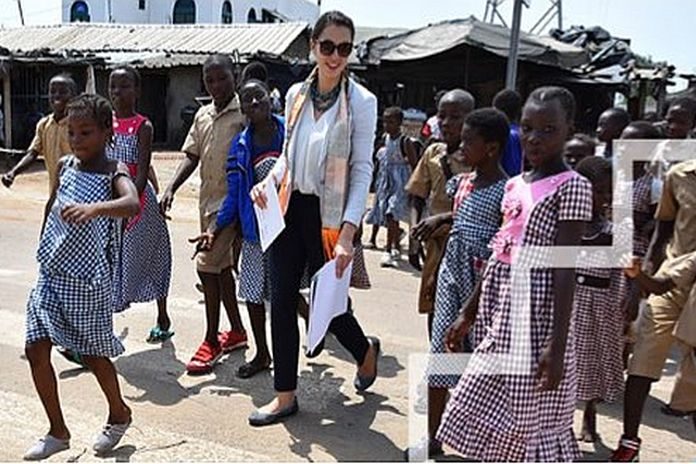
At first glance, there may seem to be little in common between the lush Caribbean island of Jamaica and the sea-port city of Dar es Salaam, the largest city in Tanzania, with a population three times larger than the entire island nation. However, technical innovations developed for sub-Saharan schools are helping protect children across the globe from danger as they make their most important journeys – the ones to access education.
Road crashes are the leading cause of death for children over the age of five. The majority of deaths occur in low- and middle-income countries despite the lower rates of motorization. In sub-Saharan Africa, home to just two percent of the world’s cars, a child is twice as likely to die on the roads than in the second most dangerous region. Cities where streets are designed for vehicles, not people, pose the greatest risk.
This danger is particularly stark around schools where hundreds of pupils flood the streets on the way to school and back. The School Area Road Safety Assessments and Improvements (SARSAI) program by the African-based NGO, Amend, identifies schools where students are at risk of road injury and death.
Engineers and statisticians assess surrounding infrastructure and implement simple changes such as speed bumps, footpaths, and traffic-calming measures, along with education to change driver and pedestrian behaviour. In Dar es Salaam, SARSAI identified the 28 most dangerous schools and protected more than 38,000 students.
Most significant is the measurable impact of the programme’s interventions: schools with SARSAI experienced 26 percent fewer traffic injuries, while vehicle speeds in school zones dropped as much as 60 percent. It is the first peer-reviewed method of its kind, proven to reduce road traffic injuries and deaths in the region, with applications for schools around the globe.
Projects, which provide empirical proof of impact, are vital examples of best practice and have wide-ranging impacts across the interlinked issues of access to education, health, sustainable communities, and others, which are too often siloed within one particular Sustainable Development Goal (SDG). Amend is part of the Child Health Initiative (CHI), a partnership building a coalition of country and donor support for safe and healthy journeys to school for all children by 2030.
It focuses on the rights of children to safe, accessible mobility which enables access to education while maintaining a healthy environment. To achieve these goals, it links partners’ regional work to collaborate and share best practice to address similar challenges, and advocates through the ‘This is my street’ campaign.
The campaign is calling for a UN Global Summit on adolescent health to combat two of the leading killers of children and young people – traffic crashes and air pollution. Every day, 700 children die in road crashes and thousands more are seriously hurt. Over two million children miss out on education each year because of death or injury in road crashes.
And around 300 million children are breathing dangerously toxic air, polluted – in large part – by traffic. The collaborative nature of CHI led its partner, UNICEF, to translate lessons from work across Sub-Saharan Africa to Jamaican roads where three children die each week. At a workshop, Amend presented how to design, implement and conduct infrastructure impact assessments with local engineers to address risks around schools. Then, UNICEF and Amend joined forces to make the streets of Jamaica’s capital, Kingston, safer by implementing safe infrastructure around a pilot school.
At the official project launch, the prime minister of Jamaica, Andrew Holness, welcomed the programme. Jamaica’s adoption of the SARSAI programme demonstrates how international collaboration with evidence-based best practice can translate a single city pilot into tangible national and regional action. The joint efforts of CHI and UNICEF will be repeated in eight more countries, tying in global coordination and advocacy to leverage further resources for road traffic injury prevention.
This ability of the SARSAI project to be successfully scaled up and replicated in a different country context, has prompted UN DESA to include it in a database of over 500 good practices for the SDGs, which gathers inspiring breakthroughs and success stories from around the world that are helping to make the SDGs a reality.






